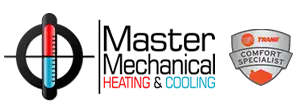What Particles Can Air Purifiers Remove?
Air purifiers are becoming increasingly popular in homes today, in part due to growing concerns about indoor air quality. In fact, the EPA states indoor air is a source of more pollutants and irritants than what's common with outside air. While air purifiers do offer some appealing benefits, there are limitations. Below, we go over particles air purifiers are typically able to remove and what else you should know about these devices.
What Air Purifiers Actually Do
Unlike humidifiers, air purifiers remove particles from the air rather than adding anything. However, purifiers also sanitize to a certain extent. Whether in the form of single-room portable units or whole-home purifiers, these devices can either trap unwanted particles or neutralize them, depending on the specific model and type.
Particles Typically Removed with Air Purifiers
Air purifiers do work, but they won't remove every potentially harmful airborne substance in your home. That said, it's possible to have fewer issues with respiratory ailments and allergies with a top-quality air purifier. Common particles typically removed or reduced to some extent with air purifiers include:
- Allergens: When combined with a high-efficiency particulate air (HEPA) filter, air purifiers often remove enough airborne allergens from your home's indoor air to minimize allergy issues.
- Mold: Airborne mold spores are typically removed to some extent with air purifiers. However, filtration is a more efficient and effective way to achieve this goal with increased reliability.
- Smoke: Air purifiers with filters can generally eliminate tobacco smoke and smoke from other sources like cooking, but not necessarily the related odor. Smoke may also still leave stains on walls and other surfaces.
- Indoor toxins: Toxins from personal care and cleaning products can also produce airborne irritates air purifiers can sufficiently remove, although it's best to minimize the use of such products as much as possible.
Overcoming Air Purifier Limitations
Air purifiers can be beneficial, but they tend to work more effectively when combined with a filter, especially a higher-quality HEPA filter. However, an air purifier isn't going to be much of an asset if you're not also taking additional steps to maintain your home's indoor air quality. The reason is that air purifiers only remove airborne particles, not ones on surfaces. Therefore, it's also important to combine the use of an air purifier appropriate for your needs with efforts involving:
- Using a HEPA filter vacuum
- Frequently cleaning carpeting, furniture, and floors
- Replacing carpeting with surfaces less likely to trap allergens like hardwood and vinyl
- Washing your bedding in hot water regularly
- Not smoking indoors
- Bathing pets regularly
- Regularly changing your HVAC filters at least every three months
- Controlling humidity levels in your home to prevent dust mite or mold issues
- Using non-toxic cleaning products
Call Us Today
Master Mechanical is the company to turn to with confidence for all your indoor comfort needs. Call our trusted local pros, and we'll offer recommendations specific to your concerns and needs if you have indoor air quality issues.
Contact us today to learn more about our services, products, and solutions.






